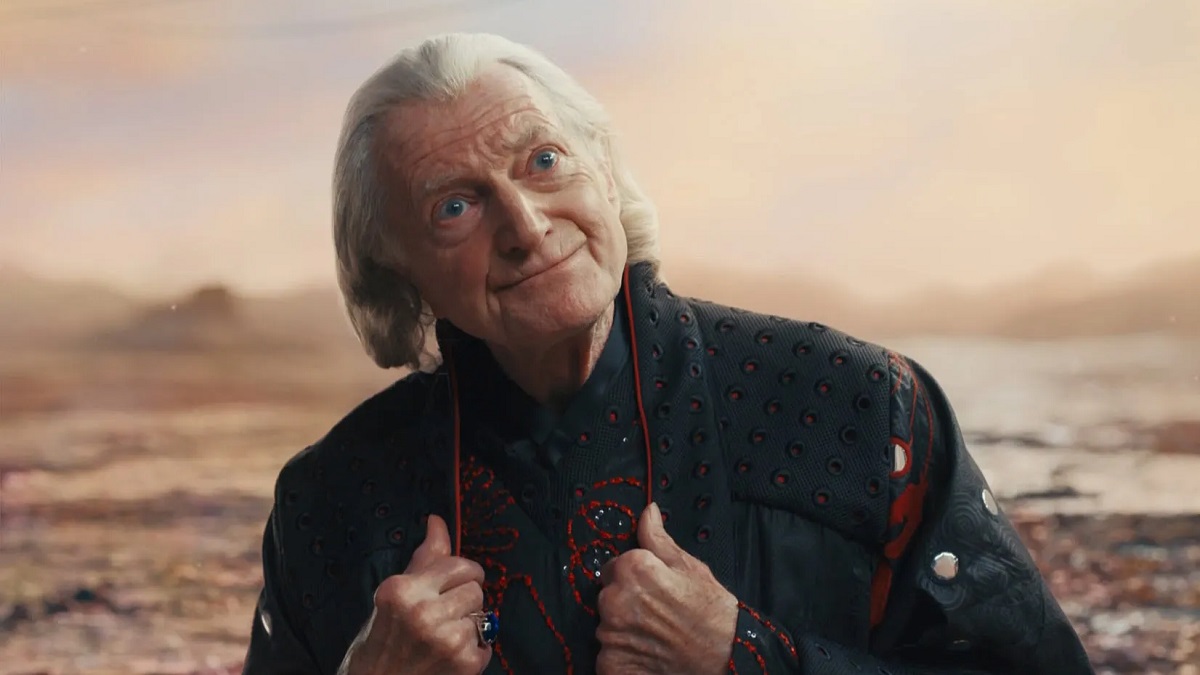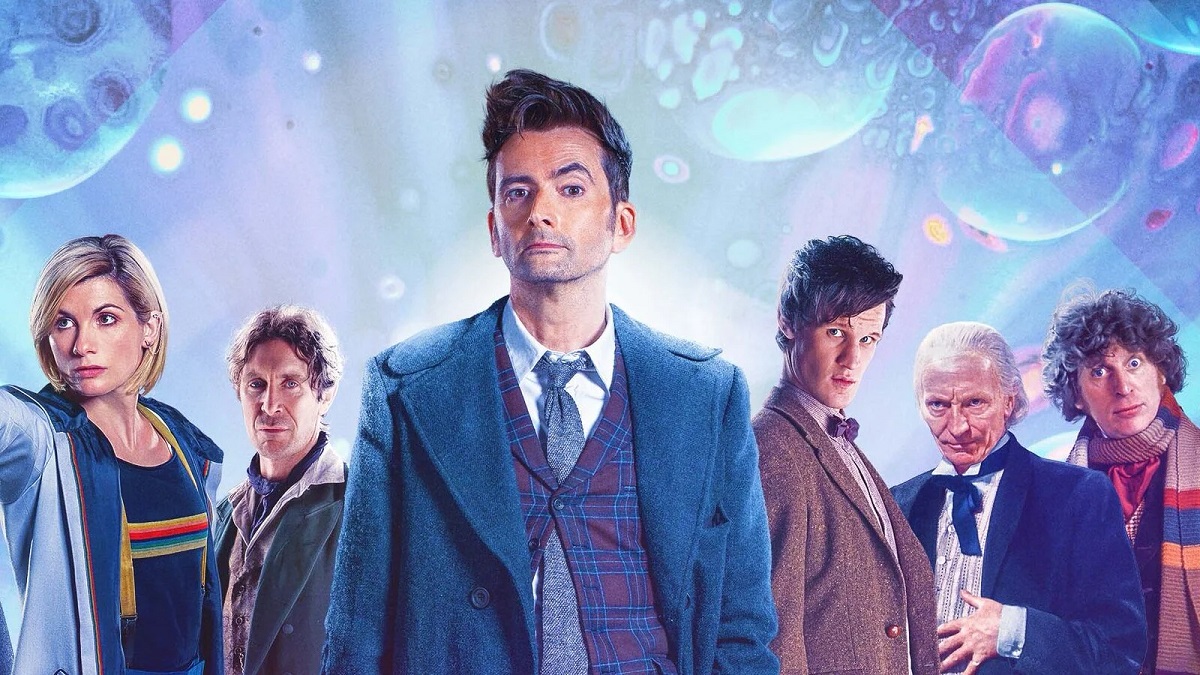Doctor Who is one of the most recognizable names in the entertainment world today. Making its debut all the way back in 1963, this British sci-fi series is not only the longest-running television show in its genre, but it’s also one of the most popular, with worldbuilding and narrative foundations that span decades and contain, quite literally, thousands of stories.
Even if you haven’t watched a single episode of Doctor Who to date, you’ve probably heard of its titular character. An adventurer in all of time and space. The savior of worlds. The man with two hearts and a sonic screwdriver, passing through and helping out whenever he can. The Last of the Time Lords, the Lonely God, the Uncoming Storm; the list goes on. And if by any chance you don’t know about the Doctor in specific, you’ve probably heard of their numerous companions. Or perhaps the Daleks, or the Cyberman, or the Weeping Angels, or any fan-favorite monster from a roster of iconic pop culture figures.
The so-called Whoniverse has persevered through all these years thanks to its sheer popularity in the U.K. and beyond, but that’s not the only reason Doctor Who is still a force to be reckoned with. There’s almost a timeless quality to the fairy-tale nature of the Doctor’s journey across time. The wellspring of stories never dries out, and the character sitting at the heart of this narrative is intriguing enough to always leave room for some other sliver to explore.
Doctor Who has inspired dozens and dozens of other artists in its 60-year history. People get into science because of watching Doctor Who. Writers like Neil Gaiman and Douglas Adams are inspired to pursue tales of their own creative devising after watching Doctor Who, and many (these two included) end up actually writing for the show. This isn’t just another sci-fi franchise meandering its way through an endless sea of other similar IPs, now irrelevant and mostly forgotten. This is the show that stands at the summit and casts a shadow over all those other stories, and for that reason alone, it might be worth it to know when, where, and how it was originally conceived.
The beginning of Doctor Who

It all began when the BBC brought Sydney Newman on to give them a much-needed boost in the early 1960s. Newman had garnered a lot of acclaim for his work on CBC and ABC TV, and due to his deep understanding of how television dramas worked back then, he was the perfect candidate for the job of expanding the network’s portfolio. The BBC, in particular, wanted a program to air between two other popular shows on Saturdays, so being a longtime fan of science fiction, Newman started conceptualizing a new drama series for that time slot.
While many people contributed to the idea in those early days, namely Donald Wilson and C.E. Webber, who crucially helped define Doctor Who‘s identity, it was actually Newman himself who came up with concepts like a time machine that’s bigger on the inside than it appears, or the nameless protagonist who simply goes by “Doctor” and doesn’t wish to talk about his past or divulge his real name. Newman brought his ABC assistant, Verity Lambert, on board to produce the series, and like lightning in a bottle, the new makeshift team managed to turn the show into an absolute sensation in the U.K.
“An Unearthly Child” introduced everyone to William Hartnell on November 23, 1963, as the show’s first episode. Unfortunately, the premiere coincided with the assassination of President John F. Kennedy, which is why it got off to a lukewarm reception. The crew didn’t give up on the concept, however, and pushed on with the narrative, until the introduction of the most iconic villains, the predatory aliens known as the Daleks, finally allowed Doctor Who to field its true potential. At that time, the show had managed to rope in more than a staggering 10 million viewers, which surprised even Newman.
William Hartnell was 55 when Doctor Who first premiered. He embodied the Doctor to the fullest and turned him into a hero for the younger generation, but his deteriorating health was catching up with the show after merely three years. Ultimately, it was decided that Hartnell should step down, and the producers had to come up with a way to keep the show going. Well, since the Doctor was a strange alien with two hearts, the writers decided to give him the power of renewing his physical appearance, the power that Whovians now recognize as “regeneration.”
Hartnell gave up the mantle to Patrick Troughton, whom he thought was the best person to succeed him. And the rest, as they say, is history. (You can watch the history of these origins in the 2013 documentary film, An Adventure in Time and Space.)
Why was Doctor Who canceled in 1989, and how did it come back in 2005?

After going on an epic run comprising hundreds of episodes, Doctor Who came to an abrupt end in 1989. There are a number of reasons contributing to this monumental, tragic cancellation. One was the increasing budget demand for a sci-fi television show, which, in the face of other contemporaries, was starting to show its wear and tear. On one hand, Doctor Who was losing viewers by the millions, and on the other, the BBC’s new executives weren’t as keen as their predecessors to keep the show — and thus its tradition — alive.
The fact that Doctor Who stopped airing regularly from 1989 didn’t spell its doom. Far from it, in fact. The show retained a dedicated fanbase throughout those dark years, and they wouldn’t give up without a fight. An attempt was made to revive the show in 1996 through a television movie, but there was no concrete plan beyond developing a backdoor pilot, and since the American viewership was underwhelming, the idea was dropped.
At long last, and after 16 years of absence, long-time Doctor Who fan and acclaimed television producer Russell T. Davies attempted another revival in the early 2000s, resulting in what we now colloquially refer to as “Modern Who” or “New Who.” Since its reboot, Doctor Who has only grown in popularity, and despite bearing the legacy of a franchise haunted by many pitfalls — not least of all the fact that almost a hundred episodes and their footage from those early days are missing from the BBC archives — Doctor Who is still going strong after all these years.
In fact, the series is planning to celebrate its 60th anniversary in November 2023. Now, I don’t know about you, but there are only a handful of IPs out there that can claim to have imitated this baffling longevity. Star Trek, which first premiered in 1966, comes close, but only barely.
As Whovians, we can only say one thing in the face of that: May it continue!








Published: Nov 30, 2022 06:00 am